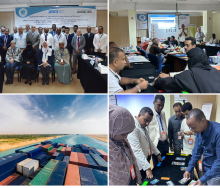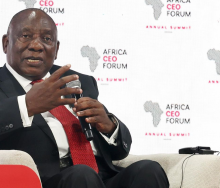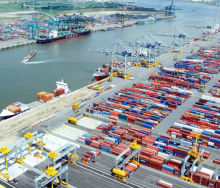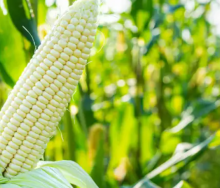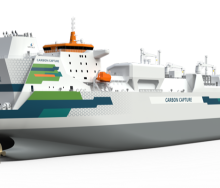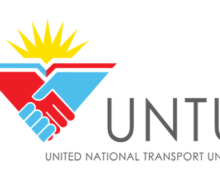South Africa’s trade performance is at a crossroads, where structural challenges intertwine with untapped global opportunities, says Dr Martin Cameron, MD of Trade Advisory.
His observations paint a compelling picture of an economy with significant potential but one that requires urgent action to address its weaknesses, especially in the light of recent tariff developments in the United States.
He points out that South Africa’s export performance has been defined by both growth and trade-weighted growth.
While traditional sectors continue to lead, smaller industries are emerging as promising contributors.
“Meat and edible meat products, essential oils and agricultural raw materials like vegetable textile fibres are examples of smaller sectors experiencing strong growth between 2023 and 2024,” he said.
However, the key drivers of export growth remain vehicles, citrus products and minerals, with citrus trade particularly influenced by partnerships like the African Growth and Opportunity Act (Agoa).
“Automotive exports, constituting 25% of Agoa-enabled trade, have been one of the major sectors benefiting from preferential US tariffs.”
Yet, only about 26% of eligible exports utilise these benefits, a statistic that highlights complexities in South Africa’s trade processes.
Cameron highlighted significant internal and external barriers that limit South Africa’s export potential.
Chief among these is the country’s deteriorating business environment.
“Institutional weakening of law and order, exemplified by complicit policing in thefts and vandalism, creates uncertainty and challenges for businesses.”
The 2021 riots in KwaZulu-Natal, where containers were stolen from harbours, illustrate these deep-rooted issues.
Another pressing challenge is the energy crisis.
Cameron warns of a “twofold energy crisis”— Eskom blackouts caused by undermaintained infrastructure, and a growing dependence on imported liquid fuel due to the closure of three refineries since 2020.
“We’re supposed to have about 60 days’ worth of fuel in the system, but we’re nowhere near that,” he cautioned.
This leaves South Africa vulnerable to supply disruptions, further compounded by infrastructure theft and hijackings.
He also stressed that the transport sector, crucial for trade efficiency, faced its own hurdles.
In Johannesburg alone, 78% of the city’s bridges are deemed structurally unsound, with 25% classified as unsafe to cross.
“Trade is a key enabler, but when physical infrastructure starts to collapse, it disables economic activity entirely,” he said.
Perhaps most critical are South Africa’s underperforming ports, ranked the worst globally by the latest Container Port Performance Index (CPPI).
Cape Town is ranked in last place of the 405 ports listed in the CPPI.
The port of Ngqura (Coega) was ranked at 404, Durban at 398, and Port Elizabeth at 391. Container terminals at the four ports are operated by Transnet Port Terminals (TPT).
“Some shipping lines bypass Cape Town or Durban, opting to deliver their consignments elsewhere first and only drop off containers on the return journey, delaying deliveries for three to six months due to poor port performance.”
Cameron emphasised that “if ports are slightly underperforming, it has a huge knock-on effect on any transaction”.
Bilateral and multilateral trade agreements play an indispensable role in South Africa’s economy, contributing nearly 70% of its GDP.
“We cannot get away from the fact that our economy is dependent on both imports and exports,” he said.
Agreements like Agoa have historically supported South African trade, particularly in agriculture and automotive sectors.
However, the trade landscape is evolving. The expiration of Agoa benefits highlights the need for South Africa to strengthen partnerships with the European Union and explore regional opportunities under frameworks like the African Continental Free Trade Area (AfCFTA).
“AfCFTA is aspirational and not there yet, but it’s something we need to push to reduce reliance on non-African markets,” he said.
Beyond regional agreements, individual partnerships also matter. While China remains South Africa’s largest trade partner, accounting for 12% of exports between 2023 and 2024, much of this trade involves low-value raw materials.
Conversely, the US – a key partner for high-value goods like automotive products – accounts for 8%. This difference underscores the importance of diversifying export strategies to target high-value markets.
Global shifts present opportunities for South Africa to diversify export markets. Agricultural and Agri-processing sectors hold unique advantages due to the country’s distinct growing cycles.
Rising income levels in Southeast Asian markets, for instance, are fuelling demand for South African products.
Cameron estimates there is untapped potential worth $50–70 billion in markets such as Germany, China, Japan and India.
The key, however, lies in addressing logistical and regulatory barriers.
“If infrastructure and services are not in place, political agreements become meaningless.”
Market access also hinges on compliance with international standards, such as phytosanitary requirements, which require proactive government engagement.
South Africa’s ability to capitalise on trade opportunities depends on bold leadership and strategic policymaking.
“Our leadership needs to realise that other countries are moving fast in the new global geo-economic context. We can’t afford to take our time,” he said.
The solution, he argues, begins at home. By reallocating resources to fix critical infrastructure issues, South Africa can create an enabling environment for businesses.
“We need to take a little bit of pain, reallocate budgets, and execute efficiently,” he advises.
Failing to do so risks not only missing trade opportunities but also undermining long-term economic stability.
While challenges remain, South Africa is at a pivotal juncture.
“Now is the time to act. There’s opportunity to impress the world and build a better future for South African citizens.”
By addressing infrastructure deficits, embracing trade diversification, and leveraging regional partnerships, the country can position itself as a competitive player in the global market.
The road ahead will require resilience and accountability from policymakers.
“Our leadership must step up and show they have the ability to justify their roles. The world won’t wait for us.”

